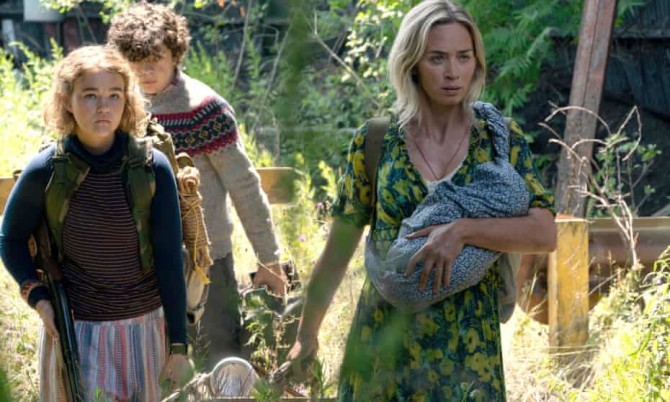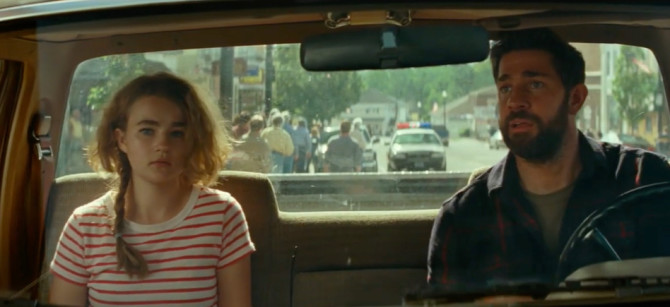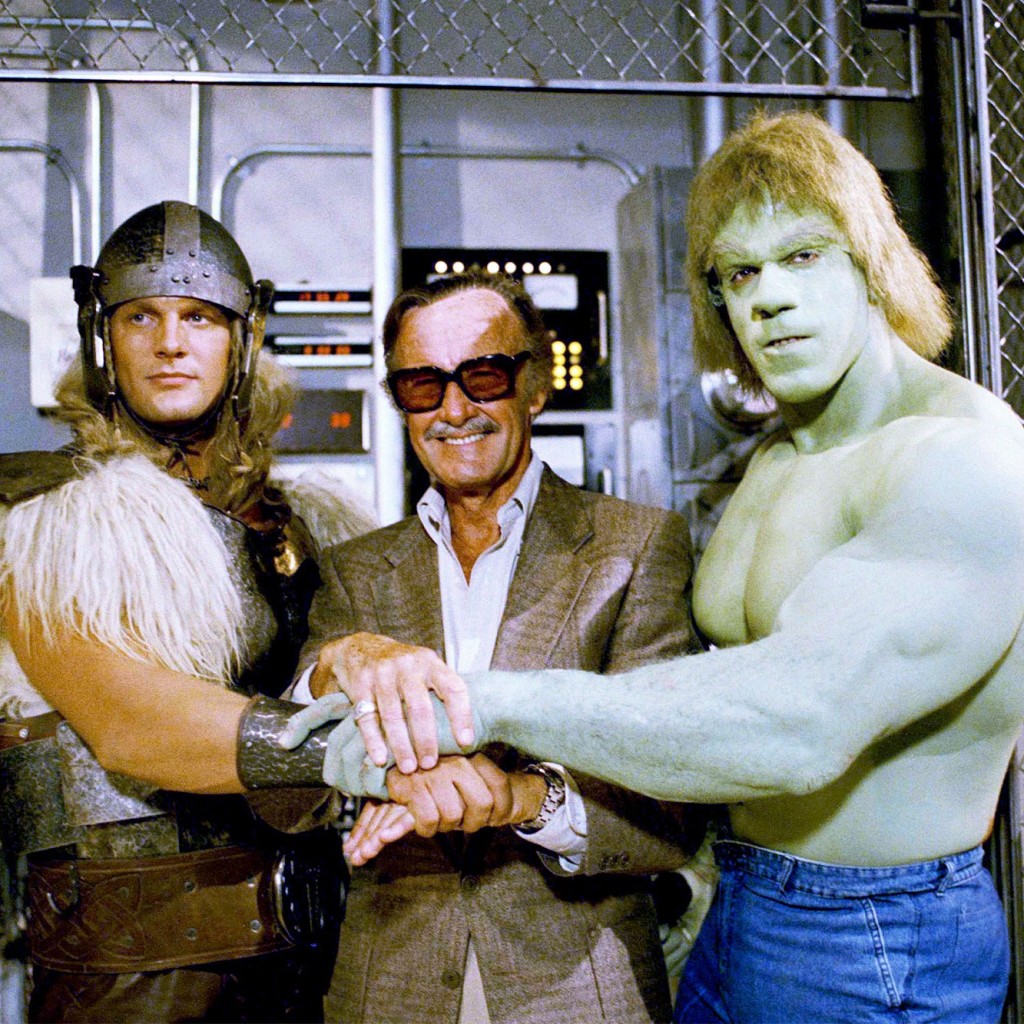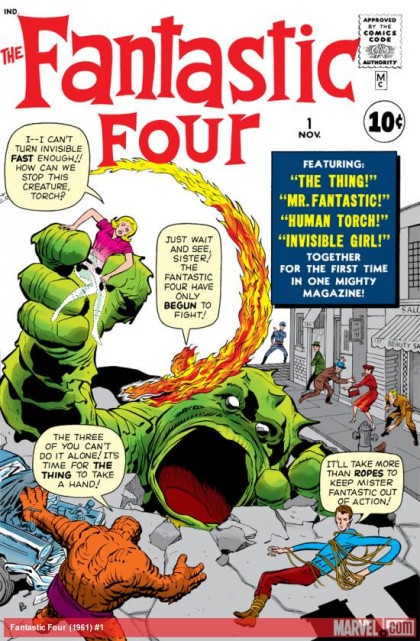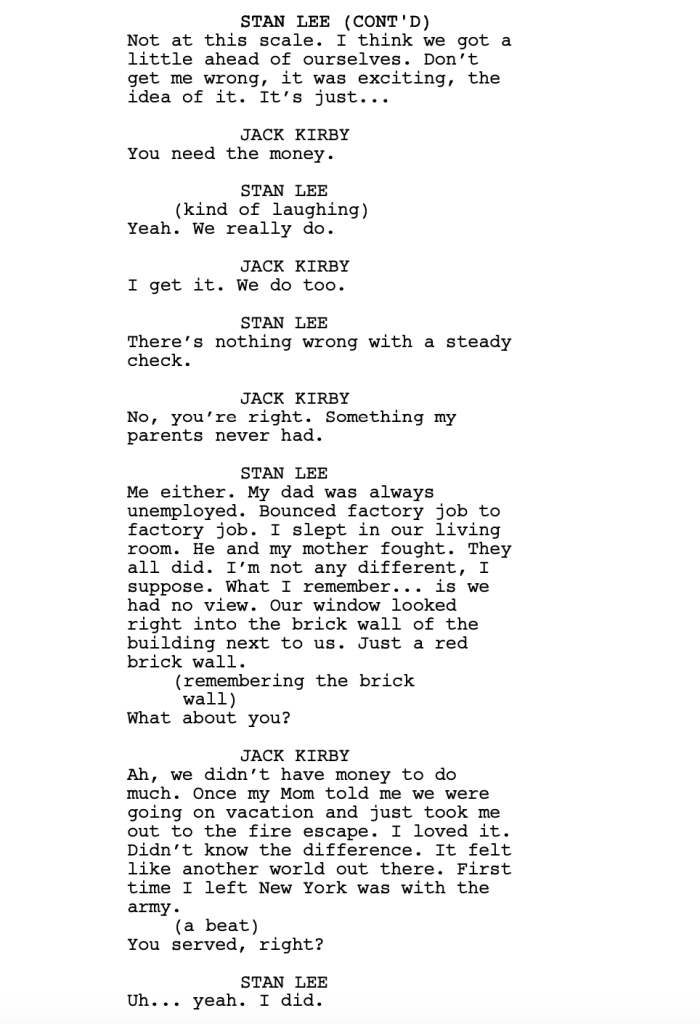The newsletter is out! Sign up if you want me to send it to you!
Genre: Horror
Premise: Taking place right after the previous film, the Abbott family must leave their farm and find shelter in a world where the survivors may be more dangerous than the monsters.
About: Movies are back, baby! A Quiet Place 2 brought nearly 60 million dollars in for the Memorial Day weekend. Director John Krasinski was notoriously manipulated by Paramount to direct the second film and I think everyone on both sides is glad he did because John Krasinski has single-handedly saved movies. That’s right, Krasinski, who rewrote Scott Beck and Bryan Woods’ original spec, went solo on the writing for the sequel. Don’t cry for Beck and Woods, though. They just finished shooting their mysterious directing debut, “65,” starring Kylo Ren.
Writer: John Krasinski (based on characters by Scott Beck and Bryan Woods)
Details: A scant 90 minutes
With both the Arclight and The Grove closed down, I was forced to venture into the land of unknown theaters. I zig-zagged my way east until I landed in Koreatown and that’s where I saw A Quiet Place 2. The film even had Korean subtitles for the few times that the characters spoke. I now know that the Korean word for “Shhhh” is… also “Shhhh.”
Our second Quiet Place starts with a flashback. Our father from the first film, Lee Abbott, is at his son’s baseball game, when he looks up and sees something smoky streaking through the sky. Soon everybody’s noticing this and people start getting nervous, so they file out to their cars.
Lee grabs his wife, Evelyn, along with their kids, Regan and Marcus, and head to their car, which is parked on main street. Within seconds, one of those terrifying creature things crashes into the crowd and starts stabbing everyone with its giant stabby legs. It’s a superbly directed scene and you can get the lowdown on how Krasinski directed it here!
Cut to present day and the Abbott family, minus Lee of course, since he died in the first film, has to find a new place to live. So they gather their things (along with their newborn baby who has a special ‘oxygen suitcase’ for when he starts crying) and away they go.
They eventually get to an old friend of Lee’s named Emmett, who lives in an abandoned warehouse. The family wants to stay with Emmett, who’s unsure, when Regan disappears one morning, determined to find the location of a radio signal that’s being sent out. Emmett is forced to go after her while Evelyn stays with an injured Marcus. Emmett and Regan team up and find the mysterious signal. But it may not be what they hoped for.
There’s this whole other story happening underneath the story of the Quiet Place franchise that’s kinda interesting. Krasinski always thought of the original film as, primarily, an opportunity to direct a feature. He didn’t even like people bringing up that it was a horror film. Whenever they’d ask him why he decided to make a horror film, he’d say he doesn’t see it as a horror film. But rather a film about family.
Why is this relevant? By Krasinski treating the original as an experimental one-off where he could hone his directing chops, he could make bold story choices, such as killing his character off. That usually doesn’t happen. The big male lead in a film always saves the day.
In addition to Krasinski not being all in, his wife, Emily Blunt, wasn’t all in either. She only did the film to help her husband out. Emily Blunt wouldn’t have been in A Quiet Place for any other director. So we see similar bold choices being made in A Quiet Place 2. In any other situation, Emily Blunt would become the big lead of the franchise. She’s the one who’s now going to save the day. But that’s not what happens.
Since nobody involved has any ego attached to the film, they can do whatever they want. And they do. They put the weight of the franchise on a deaf teenage character. That’s a bold choice right there. And it’s the reason A Quiet Place 2 shines. We’re never quite sure where the movie is going.
This works all the way up until the ending. John Krasinski is a good director and a fairly strong writer. That opening sequence is going to go down as one of the best movie sequences of 2021. But he clearly has some problems in the 3rd Act department. I remember the original Quiet Place ending being a little weak. This one is even weaker.
You know you didn’t stick the landing when you cut to black and the audience is expecting a fade in on the next scene. I could see everyone in the theater getting up, miffed that the movie had ended so abruptly.
Even if you want to argue the artistic merit of slamming into an ending like that, there are basic things that don’t work with audiences. One of those things is that when you make a film about a family, especially a horror film, you don’t end the movie with the family apart. The audience needs to see the family back together again.
I suppose you could make the argument that he’s setting up the third film. But that’s the strange thing about it. It’s not a big enough cliffhanger for us to be able to imagine a third film. It just felt sloppy.
Which is too bad because the rest of the movie is so good. Krasinski particularly shines with set pieces. Like I mentioned, the opening sequence is really good. We’ve seen similar sequences like it before. Such as the famous one in Spielberg’s War of the Worlds. But there was something so intimate about setting it in a small town that made the monsters’ arrival even more emotionally impactful.
The first moment they’re on main street – a nervous energy in the air – and that monster plows into an unsuspecting citizen… that moment brought me back to the movies again. It reminded me of the power of seeing films in a theater. And kudos to everyone on the Quiet Place team for coming up with a relatively small concept that demands to be seen in a theater.
Usually, horror movies are the same regardless of whether you see them in theaters or at home. Actually, they’re probably scarier at home. You’re not missing out on anything if you see The Conjuring in your living room. But you’re missing out on an experience if you don’t see A Quiet Place 2 in the theater. The sound design alone is worth the price of admission.
I know the Quiet Place bashers are going to be out in full force. There are still aspects of the concept that don’t quite make sense. Like trying to raise a baby who cries five times a day in a universe where you can’t make a noise. But what’s so impressive about A Quiet Place 2 is that the elements about it that work, work so well that you overlook the movie’s weaknesses. At least that was the case for me. Definitely check this out if it’s at a theater near you.
[ ] What the hell did I just watch?
[ ] wasn’t for me
[x] worth the price of admission
[ ] impressive
[ ] genius
What I learned: A Quiet Place 2 reminded me of the power of going into a scene thinking about SHOWING rather than TELLING. Krasinski had no choice but to start each scene off with the mindset, “Okay, how do I tell the story of this scene without words?” Even though you probably don’t have sound-hunting monsters in your own screenplay, this is still a great habit to have as a writer. When you start writing any scene, consider first how you might tell it without dialogue. You may find that it’s impossible. But every once in a while, you’ll come up with a way better scene than you originally had in mind. I guarantee it.
What I learned 2: This is going to be a weird “What I Learned” but stick with me. Vanity Fair does this cool thing where they have a director take them through the best scene in their movie. That’s what we see here with Krasinski taking us through the opening scene. So, whenever you’re about to write a set piece scene, try to write something that Vanity Fair would watch and say, “That’s the one we want you to break down.” And try to top yourself with every additional set piece. Even though you wrote the last one to be the Vanity Fair scene, try to make this next one even better than that one. I see too many writers settling for average set piece scenes. Your set pieces are the moments where you really get to show your movie off. You should try and make them as amazing as possible.
Lots of great stuff in this month’s newsletter. We’ve got the inside scoop on the Amazon-Bond deal. We’ve got an update on Kinetic. I give my opinion on JJ’s leading candidate to direct the next Superman. I growl about the Willy Wonka prequel. I smh at a certain director’s latest wtf trailer. I review a script that could be the next gigantic franchise. But will anyone take a chance on it? And, finally, I announce the last showdown of the year and it’s a doozy!
If you want to read my newsletter, you have to sign up. So if you’re not on the mailing list, e-mail me at carsonreeves1@gmail.com with the subject line, “NEWSLETTER!” and I’ll send it to you.
p.s. For those of you who keep signing up but don’t receive the newsletter, try sending me another e-mail address. E-mailing programs are notoriously quirky and there may be several reasons why your e-mail address/server is rejecting the newsletter. One of which is your server is bad and needs to be spanked.
I dug into my 2020-2021 archives and found the ten best screenplays of the last two years!
If you’re anything like me (and if you’ve been on this site for long enough, I’m assuming you are), you’re wondering, “What happened to all the great scripts?” These days, an “impressive” on Scriptshadow is as rare as a Twitter user admitting they were wrong. Paula Cole had this soulful moody tune where she asked, “Where have all the cowboys gone?”
Well I’m asking a similar question: “Where have all the screenwriters gone?”
My first thought was that I was a victim of recency bias. I was probably forgetting some great scripts just because the current strawberry crop was yielding such tiny berries. So I decided to go back through my posts and find the last ten “impressives” that I gave. I scrolled down through one page of entries – didn’t find my ten impressives. Then a second page. Still hadn’t gotten ten. Then a third! Keep in mind, these WordPress pages list 100 blog entries per page!
At a certain point, I stopped looking for impressives and just looked for scripts that left an impression on me. They might not have been great. But they were memorable. Which is almost as good. I forget most of the screenplays I read within a week of reading them. Which is a lesson unto itself. Because when you boil down screenwriting, what you’re trying to do is create something that sticks with a reader – that gets inside of them. How many elements from your screenplay can you say are unique enough or strong enough to be memorable?
So here are the ten. After we go through them, we can talk about what we learned.
Title: Towers
Genre: Drama
Logline: A businessman’s obsession with his competitor leads him down a rabbit hole of self-discovery, fantasy, and delusion.
Rating: [x] double worth the read
Analysis: This is one of the most unexpected scripts on the list because I typically don’t like these types of screenplays – where the writer is playing with reality in such a way that you don’t know what’s real and what isn’t. I’ve found that most writers use this approach as an excuse to get sloppy and write fantastical questions they never have to worry about answering. In short, they’re always messy. But Towers is different. It’s weird. It reminded me of the underrated, “Little Children,” about how the fragile mind deals with a mid-life crisis. I always say if you’re going to write something weird, don’t be afraid to be weird. Towers has its buttoned-up middle-management main character become obsessed with drag racing. It’s odd in a really cool way.
Title: Birdies
Genre: Comedy/Satire
Logline: When Tabitha, a struggling foster kid, wins a contest to become part of the BIRDIES, a popular daily YouTube channel featuring the radiant and enigmatic Mama Bird and her diverse brood of adopted children, she soon learns that things get dark when the cameras turn off.
Rating: [x] impressive
Analysis: Birdies is a great example of mixing the old with the new, which is one of the best ways to come up with good ideas. The script is basically a reverse “Annie” with a social media twist. The thing I remember most about the script was how it nailed the pressure of succeeding in this emerging entertainment world, and the lengths people will go to keep those views up – namely, abusing children. One of the best ways to make a script memorable is to go to dark places. And what’s darker than exploiting children for money and fame? What’s impressive is that the script somehow manages to do this while also being funny. That’s a fine tightrope to walk.
Title: Lakewood
Genre: Thriller
Logline: Told in real time, a young mother out for her morning jog gets word that there’s been a school shooting at the high school her son attends.
Rating: [x] impressive
Analysis: While weird scripts get the nod for “most memorable” in most cases, I’m a sucker for a bare bones good idea with great execution. That’s what Lakewood is. It does two things really well. First, it takes an old idea and comes at it from a fresh angle. A school shooting where we’re never at the school. Instead, we stay with a mother of someone at the school who’s trying to get information on what’s happening. Second, the execution is flawless. It’s hard to write a bare-bones story, which is what this is. It’s one woman with a phone. Chris Sparling is the master at taking a stripped-down premise and keeping the train moving. He knows exactly how much character development the audience needs. He knows exactly how much exposition they need. And everything else is about propelling the story forward. Great stuff.
Title: Ambulance
Genre: Action
Logline: After a bank robbery gone wrong, two brothers attempt to use a stolen ambulance as a getaway car.
Rating: [x] impressive
Analysis: “Ambulance” is a lot like Lakewood in that it moves fast. But the plot is way more intricate. And that’s what drew me in. I loved how the writer, Chris Fedak, followed different characters along different paths before finally bringing them together into this wild ride on this ambulance. I mean you talk about ‘energy’ – which is a word I don’t often use when referring to screenplays – but there is a clear energy on these pages that I rarely see. It was like each of these paragraphs were being blasted out of a nuclear reactor. This is such an intense script.
Title: Voicemails for Isabelle
Genre: Rom-Com
Premise: A low-level TV writer struggles to cope with the death of her little sister by continuing to leave her voicemails chronicling the shitshow that is dating in LA. When the phone number is unknowingly transferred, a cocky New York real estate agent begins receiving the voicemails, and feels compelled to meet their creator.
Rating: [x] double worth the read
Analysis: Voicemails for Isabelle is easily the most unlikely entry on this list. In addition to rom-com bias (I enjoy, maybe, one romantic comedy script every 18 months) this concept isn’t exactly fresh. Nobody leaves voicemails anymore. So how did this script overcome that issue? Because of writer Leah McKendrick’s incredible ear for dialogue. The dialogue SINGS in this script, so much so that you literally forget you’re reading a script every time a new scene starts. The interesting think about Leah is she never formally learned screenwriting. She just really liked writing dialogue scenes between people. Clearly, she’s amazing at it. Cause this rom-com rom-rocked.
Title: They Cloned Tyrone
Genre: Sci-Fi/Comedy
Logline: A group of friends in a crime-ridden black community are thrown into disarray when they learn they’re being experimented on by evil white people.
Rating: [x] wasn’t for me
Analysis: The only ‘wasn’t for me’ on the list! So why does it make the list? When I first read this, it came off as too wacky for me. But as I was scrolling through all of the scripts I’d reviewed in WordPress, when I got to They Cloned Tyrone, I remembered it immediately. First off, that goes to show how important a good title is. But it also highlights the power of weirdness and how, if you’re writing a script that hits the same beats as every other script (aka, you’re writing a “John Wick” clone), it’s nearly impossible to make that memorable. But if you’ve got black people discovering that their entire community is being run by a series of underground white puppet-masters who are cloning and experimenting on them… it’s rare someone’s going to forget that. I still think this script is too goofy for its own good. But it’s stayed with me.
Title: Street Rat Allie Punches Her Ticket
Genre: Sci-Fi/Fantasy
Premise: An 18-year-old skateboarding “rat” named Allie finally gets her chance to leave the garbage dangerous futuristic city she’s grown up in. But will she be able to leave her fellow “rats” who must now fend for themselves?
Rating: [x] impressive
Analysis: One of my favorite things about reading is thinking I’m in for two hours of boredom only to end up having the time of my life. Sci-Fi/Fantasy is probably the single hardest genre to get right. You’re not just inventing characters. You’re not just inventing a plot. You’re inventing AN ENTIRE UNIVERSE. And almost every writer I know who’s tried to tackle this combo ends up writing exponentially inferior ripoffs of concepts from Star Wars or Lord of the Rings. Not only did Nicholl-winner McKnight overcome that obstacle, but he constructed an early-Spielbergarian protagonist in Allie. Remember one of the 10 Commandments in screenwriting:. If you write us a sympathetic likable main character, we will want to follow them through anything. McKnight nails that commandment.
Title: Resurrection
Genre: Thriller/Drama/Horror
Logline: A single mother in New York City begins seeing a mysterious older man from her past around town and becomes convinced that he’s come back into her life to kill her daughter.
Rating: [x] impressive (TOP 25!!!!)
Analysis: For someone who claims they hate vague narratives, I sure seem to prop a lot of these vague scripts up. I think what I really dislike is vague narratives DONE BADLY. Resurrection is all about this woman who’s losing her mind. She becomes convinced she’s being followed by a controlling ex-boyfriend who’s back to make her life miserable. Yet the person she believes is this man who keeps telling her he doesn’t know who she is. So it’s another, “What’s real and what isn’t?” plot. But what makes Resurrection stand out is its weird and daring choices. There’s a scene in this movie where the guy tells our heroine that he ate their baby that is so freaky I can’t even begin to describe it. This script is on another level. Another level of f&%$d up.
Title: All The Old Knives
Genre: Thriller
Logline: Two CIA operative former lovers meet for dinner and try to figure out what happened five years ago with a complicated hostage plane takeover in Vienna they were involved in.
Rating: [x] double worth the read
Analysis: I love contrast in screenplays. I love when writers balance one extreme against another. Here, we have this intense horrifying hostage situation being played against a soft easy-going dinner between two former lovers. Usually, movies will opt for one kind of narrative or the other. Rarely do they include both. So while jumping back and forth between these narratives is jarring, it’s also exciting. And each narrative has a compelling question attached to it. What happens during this hostage situation? Does everyone live or die? And, with the dinner, will these former lovers end up together again? The script also has some fun twists and turns. All The Old Knives doesn’t stick the landing. But the preceding handspring into a double front flip sure is entertaining.
Title: The Laborer
Genre: Horror
Logline: A pair of out-of-work immigrant brothers catch a break when they are hired as day laborers for a house in the Hollywood Hills, only to find out that it’s home to a vampire.
Rating: [x] impressive
Analysis: This was one of my more controversial ‘impressive’ picks but I still contend that it’s a great screenplay. I always like when writers combine situations that don’t traditionally go together. When I think of two day laborers doing work on a house, I don’t imagine them discovering a vampire being housed in the basement. From there it becomes this clever commentary of how the rich take advantage of the poor. Also, it’s unpredictable. If there’s any theme that you get from these scripts I’ve celebrated today, it should be that most of them are unpredictable. And that’s often because the writers will write these scenes that take you somewhere you didn’t expect to go. There’s a bath house scene in The Laborer that took me to that place. The Laborer is weird and unexpected in all the right places.
So, there it is! What conclusions can we draw from these scripts? What unifying factor helps them stand out from the pack? Well, there seems to be three distinct lessons here. Number one, “write weird with a purpose.” Write something weird, like The Laborer or Towers or Resurrection, but have a purpose. Don’t be David Lynch where you have no idea where you’re going and don’t care. Even if the parts of your story are vague to the audience, you, the reader, should always know the truth. Number two, twist a familiar concept. Birdies is a 2021 “Annie.” Lakewood is an unexpected update on a mass shooting movie. The writer tells the tale from a new point of view. And number three, be clever with your execution. When I read Ambulance and Street Rat, I was constantly impressed by the way the story evolved and came together. Characters intersected in surprising yet always believable ways.
What about you guys? What have some your favorite scripts been over the last year and what qualities would you say are consistent in them?
Genre: Biopic
Premise: The true story of the meteoric rise (and subsequent fall) of Marvel Comics and the star-crossed creators behind the panel: Stan Lee & Jack Kirby.
About: This script finished on last year’s Black List with 9 votes. It comes from Alex Convery, whose script, “Bag Man,” I’ve reviewed on the site. That script is about the guy who delivers money to big college sports prospects to get them to commit to their school. It was a good script. We’ll see if Alex is 2 for 2.
Writer: Alex Convery
Details: 119 pages
You guys know me. I’m not a biopic guy. But I’ve always been curious about Stan Lee. Specifically that he ended up selling Marvel for nothing only for it to become the biggest franchise in movie history. That can’t be an easy pill to swallow. I also have a morbid fascination with seeing how yet another writer deals with the awkward monstrosity known as the biopic structure.
Excelsior starts in a boardroom in a situation not unlike The Social Network. It’s 2006 and 83 year old Stan Lee is suing Marvel for 10 million dollars. Marvel’s lawyers aren’t letting him off easy. In order to prove Lee doesn’t deserve the 10 million dollars, they want him to go back to the beginning and explain HIS ENTIRE CONTRIBUTION.
So that’s where we go. 44 years ago, when a 39 year old Stan Lee was working for a magazine that put little miniature comic books in the back of every episode. Stan, by any measurable definition, was a failure. He wrote up little outlines for comics that always sucked.
So when competing comic book company, DC, came out with the first ever comic, Justice League, to put all of their superheroes in a single story, Stan’s mind began racing. What could he do to revolutionize comic books? He needed to come up with something fast. While the rest of his friends were starting families and buying big houses, Stan and his wife, Joan, lived in a tiny 1-bedroom.
But then inspiration hit. Stan realized that superheroes were kinda boring. They didn’t have any depth. They just smiled in their costumes and saved the day. What if he could create a comic book with superheroes that represented real people? They had real problems. Real issues.
Stan knew there was only one person who could help him with his vision, artist Jack Kirby. The only problem was that the introverted Kirby hated Stan’s boss. He didn’t want anything to do with him. “Why don’t we start our own comic book brand? Own the rights?” Jack asked. “Soon,” Stan said. “But for right now, let’s play by the rules.”
Once Fantastic Four became a huge hit, Marvel was born. Next came the Hulk. And, after that, Spider-Man. The two artists were on fire, the toast of the comic book industry. And yet they were doing all of this for their corporate overlord. They didn’t own any of it, which incensed Kirby, who couldn’t get Stan to see how valuable it would be to quit and do their own thing.
Eventually, a big corporate player comes in and buys Marvel Comics, making Stan Lee its front man. By that point, Kirby was getting sick of Stan’s obsession with celebrity and his propensity to take as much credit for Marvel’s success as possible. In a last ditch effort, Lee tries to get Kirby to sign with the company on a long term deal. But Kirby makes a similar plea. Leave Marvel. Be the artist he’s always wanted to be without the corporate interference. When Stan says no, their friendship is permanently destroyed.
I think writers are going to like this script because it hits on some themes that many artists are familiar with. One of the most common is the ongoing pressure from society to “give up” on your dream and submit to the way you’re “supposed to” live your life.
I never knew Stan was 40 years old before he had a lick of success. There’s a great dialogue scene early on where his wife tells him that she’s embarrassed to invite people over because all of their friends have houses. Meanwhile, they live in a one-bedroom apartment. It’s not hard to imagine the pressure Stan Lee would be under, at 40, to conform to society and give up on his dream.
The script also celebrates the power of one grea idea. Stan Lee had been going at this comic thing forever and he couldn’t figure out the magic formula. Then one day he got this crazy idea that comics shouldn’t just be about the superhero, but about the people behind the capes. What their typical day was like. What their problems were.
The prevailing thought, at the time, was that people read comics TO GET AWAY from real life. So why would anyone want to read a comic about real life? Lee bet that they would and he introduced the concept with Fantastic Four. There’s a great little scene where his boss sees the cover and says, “Where are the superheroes?” And Lee says, “They are superheroes.” And the boss says, “But there’s no costumes.” And Lee says, “Exactly.”
It’s the artist’s lottery ticket. We all have it inside of us. But it takes longer for some of us to find it.
This script is what screenwriting is really about. It’s about giving the reader characters that they can relate to. You’re obviously going to be more invested in someone who’s going through the same issues you’re going through. The trick is to find a variable that lots of people can relate to. And everybody has an artist in them. Which is why I think this script works beyond the readers of Scriptshadow.
But what really brings the script to another level is that it shows you what happens after the breakthrough, even though it’s ugly. Of course it’s great that Stan finally found success. But Convery asks the question, “What if you waited so long for success that when you finally got it, you’d do anything to keep it?”
Things get interesting when Stan buys into his own hype and becomes consumed with his image. He makes up stories to the press about how the comics are made (he pretends like everyone works on them in big jolly meetings when, in actuality, everyone works on them alone). He spreads himself too thin and starts writing weak outlines. Because he has the most personality of all the artists, the press loves him. And he uses that opportunity to oversell his contribution on every level.
As crazy as it is to say, Stan Lee turns into a dick.
And, at least from the way it’s portrayed here, he totally screws over Jack Kirby. The nail in the coffin is when he does a Fantastic Four cartoon, takes royalties, and secretly doesn’t give Jack Kirby any. Ouch. Once Kirby finds out, their friendship and working relationship is never the same.
The only thing I didn’t like about the script was that the artistic conflict between Kirby and Stan wasn’t as clear as it could’ve been. The central issue behind their contribution was the fact that Stan wrote out an outline for each comic that was exactly one page long (no idea why) and Kirby would then expand on that, since it was so short, and flesh out the story in addition to drawing the art. Then Stan would come back in and fill in the dialogue. So it was really confusing as to who contributed more. But I guess that’s why the lawsuit was so complex. Where does one person’s contribution end and another’s start when they keep swapping the comic back and forth between each other?
Whatever the case, this was a fun script and a REALLY EASY read. Check it out if you’ve got time!
[ ] What the hell did I just read?
[ ] wasn’t for me
[xx] worth the read
[ ] impressive
[ ] genius
What I learned 2: Read this script to understand the value of UNINTERRUPTED DIALOGUE. Very few action lines are placed in between dialogue lines in this script. Notice how FAST IT MAKES THE SCRIPT READ. I’m begging more writers to do this. People will have way fonder memories of your script if you do so. Resist the urge to write, “Joe looks over at Jane for a moment.” NO! Just write their freaking dialogue!
A sample of beauteous uninterrupted dialogue…
Reminder: Comedy Showdown deadline is June 17th! Here’s where you can find info on submitting and here is a list of all the comedy writing posts so far! Keep rewriting!
Genre: Horror
Premise: A continuation of the 2018 reboot of the franchise, Halloween Kills follows the immediate aftermath of Laurie Strode killing Michael Myers.
About: After Jason Blum waved his magic wand over the Halloween reboot, resulting in one of the biggest box office surprises of 2018, you knew that a sequel was coming. This movie is gearing up for big Halloween run, hitting theaters October 15th.
Writer: David Gordon Green, Danny McBride, and Scott Teems
Details: 116 pages
One of the reasons I don’t typically review sequel scripts is because they’re not relevant to you. As an aspiring screenwriter, you’re trying to get your first script through the system. If you are so lucky as to ever be able to write a sequel to one of your scripts, you will have achieved what .0001% of the people who ever come to Hollywood achieve. So why write a review geared to such a tiny percentage of people?
Well, I’d argue there’s something to learn when it comes to SSS (Sequel Suckage Syndrome). From Iron Man 2 to Matrix Reloaded to It Chapter 2 to Jumanji Welcome to the Jungle. I could go on. Something in the sequel DNA seems to invite lameness. So, what if we could identify that lameness and make sure we don’t make the same mistake in our original scripts? That knowledge could come in handy.
Halloween Kills takes inspiration from its 80s roots, specifically The Karate Kid Part 2 and Back to the Future Part 2, starting IMMEDIATELY AFTER the events of the previous film. If you don’t remember what happened, 70 year old Laurie Strode lured Michael Myers to her remote house into her basement “kill box” which she’d designed specifically for him. She then shot him and lit the house on fire.
You would THINK that Laurie would’ve learned by now that bullets and fire don’t keep Michael Myers down. And in a scene that felt more like a Jason Statham movie than a horror flick, a group of firefighters try to put out the fire, only to get their brains splattered over the walls by Mister Myers.
Meanwhile, Laurie (who doesn’t speak a full sentence in this movie until page 60, by the way) is hurried to the hospital to deal with her wounds from the Myers showdown. Once Laurie, her daughter (Karen), and her granddaughter (Allyson), get situated in the hospital, we jettison across town to a bar where we meet some random people named Lonnie, Marion, Lindsey, and Tommy. I couldn’t tell these characters apart if you gave me an entire week to study. But I think they’re one of the last few people in town who remember what Michael Myers did to this place. So they’re gathering to “remember.”
When word leaks that Michael escaped (keep in mind nobody in town yet knows that Laurie had this big fight with Michael Myers – we’re only a couple of hours removed from the events of the last film), the “Michael Rememberers” head out into town to try and find him. While you’d think that Michael would need to rest after getting shot and set on fire, he goes right back to picking off naughty members of society, killing a farming couple experimenting with their new drone. Then a few high schoolers back in the middle of town. Michael’s got to keep adding to that body count! No rest for the weary.
When granddaughter Allyson learns that Michael’s still out there, she becomes convinced she knows where he’s going – BACK HOME. So she grabs her mom, Karen, and they head to the Myers household to finish what grandma started. As you would expect, (spoilers) this turns out to be a very bad idea and Michael is able to handle them easily. He then grabs Karen’s phone right as Laurie tries to call her. Laurie is met with an intense breathing on the other end. She knows it’s Michael. And she tells him… SHE’S COMING FOR HIM!
What’s the number one reason sequels suck?
NOT ENOUGH TIME TO WRITE THE SCRIPT.
That’s it.
If you want to boil it down to one issue, that’s the one.
If you want to get more specific, lack of time leads to messiness. Sequels always feel clunky. After the first 15 minutes, scenes start to lack organic transitions. We’ll be in a bar watching two people fight then jump across to two doctors talking in a hospital. There’s a connection only in the vaguest sense. But, mostly, it feels like the writers are making up the story as it goes along.
Also, without time, you don’t have the opportunity to fix your biggest errors. And Halloween Kills has a HUGE error. It doesn’t have a main character!!! Yesterday we discussed the effects of a weak main character. But I’ll take a weak main character over NO MAIN CHARACTER any day of the week.
Laurie is sidelined to coma duty for most of the movie, which leaves us wondering who’s driving the plot. In a sense, it’s Michael. He’s the one who needs to be stopped and, therefore, the audience understands the goal. But they don’t have a principle character who they can follow as he/she tries to achieve that goal.
Allyson is the one here who has the final battle with Michael. But Allyson spends the first half of the movie tending to her grandmother. Static. In a hospital. I feel like a broken record saying this but one of the worst things you can do to your script is create characters who stand around.
It’s a movie. You want your characters going out there and doing something.
Strangely enough, we do have that here. But it comes via the barfly brigade of Lonnie, Marion, Lindsey, and Tommy, four characters I have no feel for and, quite frankly, have no idea why they’re in the script. They just show up at a bar and babble about Michael Myers as some vague entity who did bad things 40 years ago. These cannot be your protagonists.
But this is what happens when you rush a script. It’s messy. You’re just trying to get some semblance of a story down.
What sucks is that they hinted at a much more interesting story. The police kept referencing that in the bus crash (where Michael escaped), that there was a second murderer who escaped as well. So I thought they were going to pull a James Cameron where he stands in front of the studio execs, writes down on the white board: Michael Myers…….. waits dramatically, and then adds an extra ’s.’
“Michael Myers’s.”
But on serious note, two killers gives you more options. You could’ve used the second killer as a decoy. Maybe he has a mask as well and masquerades as Michael, confusing the authorities. Possibly even leading to a fake-out ending where they think they kill Michael, only to realize they killed the other guy, and the real Michael is back at the hospital. You also could’ve had Michael fight the other killer. That’s unique and something we haven’t seen from the franchise yet. But despite mentioning this other killer half a dozen times, he never shows up in the movie. Weird.
It’s crazy to me. The failure of today’s and yesterday’s scripts boil down to very standard screenwriting errors. A passive main character (Army of the Dead) never works. Especially in an action movie. And a lack of a main character is one of the hardest types of screenplays to pull off, especially in a Hollywood movie, where GSU is demanded. You can’t have the G (goal) if there’s no C (character).
So that’s the lesson I would leave you with today. If you are in a situation where you have to write a script fast, make sure the foundations are in place. Strong interesting main character, clear goal, high stakes, plenty of urgency. Cause if that stuff isn’t in place, you don’t have a chance. Which is what we saw today.
[ ] What the hell did I just read?
[x] wasn’t for me
[ ] worth the read
[ ] impressive
[ ] genius
What I learned: If the bulk of your movie has your key characters standing around, I STRONGLY RECOMMEND YOU RETHINK YOUR MOVIE.

